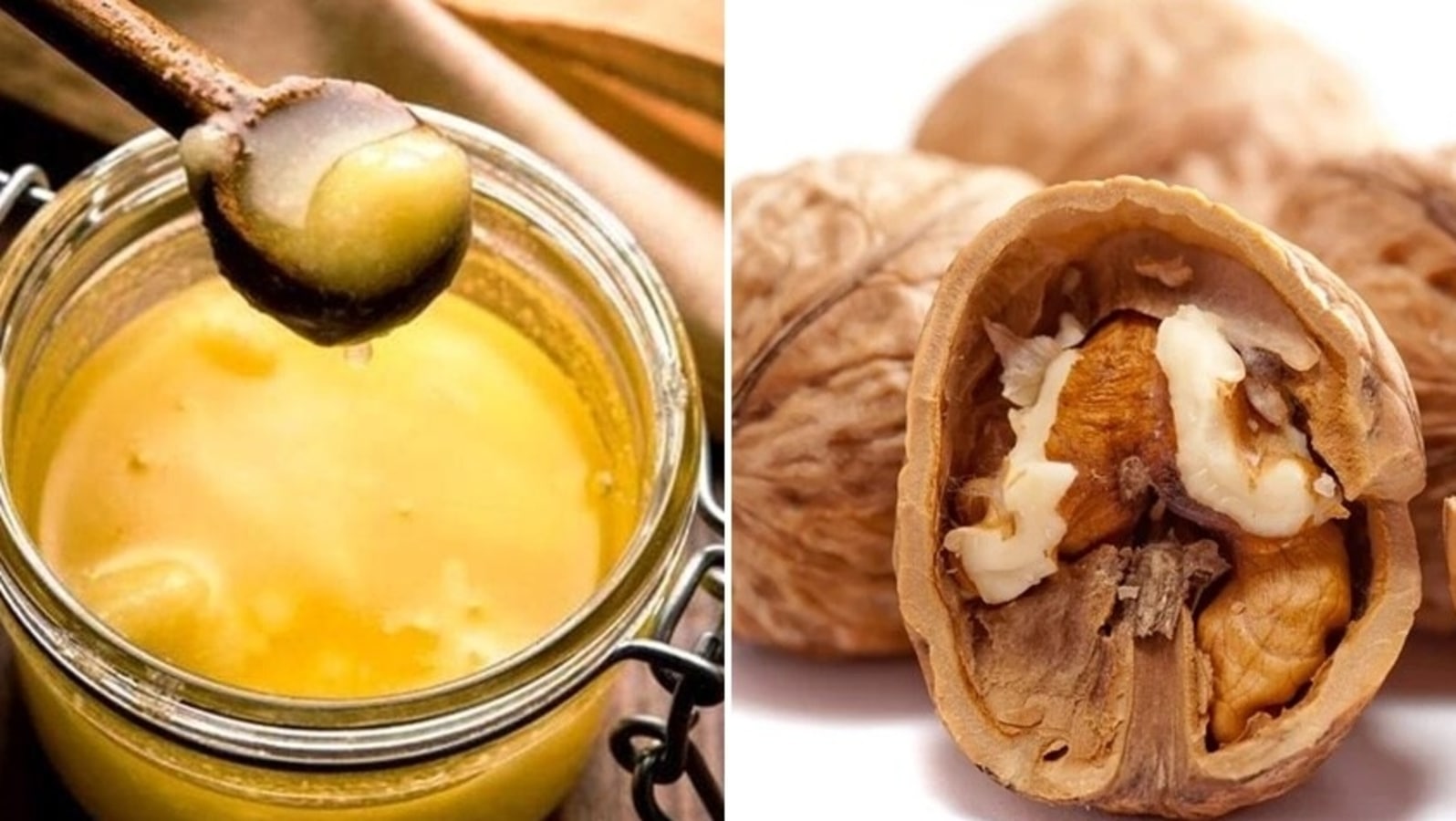To boost your health in the winter, consider consuming more winter vegetables and fruits like kale, Brussels sprouts, apples, and pomegranates. These seasonal foods are rich in nutrients and antioxidants that can help combat cold and flu viruses and boost your immune system.
In addition, incorporating root vegetables and hearty grains into your diet can provide essential vitamins and minerals to support overall well-being during the colder months. Embracing a diverse range of nourishing foods can help you feel energized and maintain a strong immune system throughout the winter season.
By making mindful choices about the foods you consume, you can support your health and well-being during the winter months.
Nutrient-rich Winter Vegetables And Fruits
Winter is a great time to explore nutrient-rich fruits and vegetables that offer a plethora of health benefits. Embracing winter produce not only adds vibrant colors and flavors to your meals but also boosts your immunity to ward off seasonal illnesses. Below are some nutrient-rich winter vegetables and fruits that you should include in your diet to stay healthy and energized during the cold months.
Cruciferous Vegetables: Brussel Sprouts, Kale, And Cauliflower
Cruciferous vegetables are packed with essential nutrients and antioxidants. Incorporating Brussels sprouts, kale, and cauliflower into your winter diet provides a significant dose of vitamins A, C, and K. These vegetables also contain sulforaphane, a compound renowned for its cancer-fighting properties. To maximize their nutritional benefits, consider roasting or steaming these veggies before adding them to your dishes.
Citrus Fruits: Oranges, Tangerines, And Grapefruits
Citrus fruits are renowned for their high vitamin C content, which is crucial for supporting a healthy immune system. Oranges, tangerines, and grapefruits are winter essentials that can help fight off cold and flu symptoms. Additionally, their refreshing, tangy flavor can brighten up any winter meal or snack.
Root Vegetables: Carrots, Sweet Potatoes, And Beets
Root vegetables are hearty and nutrient-dense additions to your winter menu. Carrots, sweet potatoes, and beets are rich in antioxidants, fiber, and vitamins like A and C. Consuming these veggies not only supports immune function but also aids in digestion and provides a good source of energy during the colder months.
Incorporating Healthy Fats And Proteins
Winter is the time to nourish the body with foods rich in healthy fats and proteins. These nutrients not only provide warmth and insulation but also support overall health, energy, and immunity during the chilly season. Here are some essential categories of healthy fats and proteins to include in your winter diet:
Omega-3-rich foods: Salmon, Chia Seeds, And Walnuts
Eating foods rich in omega-3 fatty acids is beneficial for heart health, brain function, and inflammation control. Salmon is an excellent source of omega-3 fatty acids and is easily incorporated into various winter dishes. Chia seeds and walnuts are also great additions to meals, providing a dose of these essential fatty acids.
Lean Protein Sources: Turkey, Chicken, And Legumes
Proteins play a crucial role in maintaining muscle mass, supporting the immune system, and facilitating satiety. Incorporating turkey and chicken into your winter recipes ensures a lean protein intake, promoting muscle strength and overall health. Additionally, legumes such as lentils and chickpeas are excellent plant-based protein sources for hearty, nourishing meals.
Plant-based Fats: Avocado, Olive Oil, And Flaxseeds
When it comes to healthy fats, opting for avocado, olive oil, and flaxseeds not only enhances the flavor of dishes but also provides essential nutrients for a well-rounded diet. Including these plant-based fats in your cooking adds richness and depth to winter meals while promoting heart health and overall well-being.
Warm And Nourishing Whole Grains
Winter is the perfect time to embrace the comforting goodness of warm and nourishing whole grains. From hearty soups to warm porridges, these grains provide the essential sustenance our bodies need during the colder months. Let’s explore the wholesome and satisfying options that can elevate our winter meals.
Quinoa, Brown Rice, And Oats
Quinoa, brown rice, and oats are excellent choices for a winter diet. They are rich in fiber, keeping you full and satisfied for longer periods of time. These whole grains are also packed with essential nutrients, including vitamins, minerals, and antioxidants.
Whole-grain bread and pasta options
When it comes to having whole grains in the form of bread and pasta, opt for whole grain varieties to maximize nutrients. Whole-grain options provide a healthier alternative to refined grains, offering a substantial source of energy and essential nutrients.
Barley And Farro For Hearty Soups And Stews
Barley and farro are robust and hearty grains that add depth and flavor to soups and stews. Their chewy texture and nutty flavor make them perfect for creating warming, wholesome dishes that will keep you satisfied on chilly winter days.

Credit: www.hindustantimes.com
Hydration Through Herbal Teas And Broths
In the chilly winter months, maintaining proper hydration can be a challenge. However, integrating herbal teas and broths into your daily routine can help keep you hydrated while also providing valuable health benefits. Whether you’re looking to support your immune system or soothe digestion, these beverages are a delicious and beneficial addition to your winter wellness regimen.
Peppermint Tea For Digestion And Respiratory Health
Peppermint tea is a refreshing and invigorating option for improving digestion and respiratory health during the winter season. Its natural menthol content can help alleviate symptoms of indigestion, bloating, and gas, while also promoting easy breathing and relief from congestion. Additionally, the soothing nature of peppermint can provide comfort and relaxation, making it an ideal choice to combat the winter blues.
Ginger And Turmeric-infused Teas For Immune Support
Ginger and turmeric-infused teas are potent allies in bolstering your immune system against winter-related illnesses. Ginger offers anti-inflammatory and antioxidant properties that can aid in reducing the risk of infections, while turmeric provides powerful immune-boosting effects due to its high curcumin content. Consuming these teas regularly can fortify your body’s defenses and help you stay healthy throughout the colder months.
Bone Broth For Collagen And Mineral Intake
Bone broth serves as a valuable source of collagen and essential minerals, making it an excellent choice for maintaining overall health and vitality. Rich in nutrients such as calcium, magnesium, and phosphorus, bone broth supports the health of bones, joints, and connective tissues. By incorporating bone broth into your winter diet, you can ensure that your body receives the building blocks it needs for optimal well-being.
Seasonal Superfoods For Immunity Boost
When it comes to staying healthy during the winter months, incorporating seasonal superfoods into your diet can be a game-changer. These nutrient-packed foods not only provide essential vitamins and minerals but also help boost your immune system, keeping you strong and resilient against seasonal illnesses. Here are some of the top seasonal superfoods for immunity boosts:
Berries For Antioxidants
Rich in antioxidants, berries such as blueberries, strawberries, and cranberries are essential for fighting off free radicals and supporting overall immune health.
Mushrooms For Vitamin D
Not only do mushrooms add a delightful earthy flavor to dishes, but varieties like shiitake, maitake, and oyster mushrooms also offer a natural source of vitamin D, which plays a crucial role in immune function.
Garlic And Onions For Immune-boosting Properties
High in immune-boosting properties, garlic and onions are staple ingredients that not only enhance the flavor of your meals but also provide valuable support to your immune system.
Spices And Herbs For Added Flavor And Health Benefits
Spices and herbs not only add depth and flavor to your winter recipes but also offer a plethora of health benefits. Incorporating these natural ingredients into your diet can help boost your immune system and overall well-being during the colder months.
Cinnamon And Nutmeg For Blood Sugar Regulation
Cinnamon and nutmeg are not just popular winter spices; they also have remarkable health benefits. Cinnamon contains compounds that may improve insulin sensitivity, making it a valuable addition to your diet if you are looking to regulate your blood sugar levels. Likewise, nutmeg has been shown to have a positive impact on blood glucose control, making it a great choice for those seeking to maintain stable blood sugar levels.
Rosemary And Thyme For Respiratory Health
Incorporating rosemary and thyme into your winter dishes not only adds a delightful aroma and flavor but also potential health benefits. Both herbs have natural properties that can support respiratory health. Rosemary, in particular, contains compounds that may help improve airway function, while thyme is known for its potential to alleviate coughs and congestion, making them essential herbs for promoting respiratory wellness during the colder months.
Ginger And Cloves For Improving Circulation
Ginger and cloves are renowned for their ability to improve circulation and enhance overall cardiovascular health. Ginger, with its active compound gingerol, has been shown to have blood-thinning properties and improve blood flow, making it a valuable addition to your winter diet. Cloves, on the other hand, contain compounds that may support arterial health, making them beneficial for maintaining proper circulation.
Addressing Seasonal Deficiencies With Supplements
Vitamin D For Sun Exposure Deficiency
During the winter, reduced exposure to sunlight can lead to a deficiency in vitamin D. In these colder months, it becomes crucial to ensure optimal levels of this essential nutrient to support overall health. Supplementing with Vitamin D can help compensate for the lack of sunlight and aid in maintaining the body’s immune function and bone health.
Omega-3 Supplements For Inadequate Fish Consumption
For those who may not consume fish regularly, obtaining an adequate amount of omega-3 fatty acids becomes challenging. In such cases, considering Omega-3 supplements can be beneficial in supporting heart health, reducing inflammation, and promoting cognitive function, especially during the winter months when fresh fish may be less accessible.
Probiotics To Support Digestive Health In Winter Months
Probiotics play a vital role in maintaining digestive health, which can be particularly vulnerable during the winter. Including probiotic supplements in the diet can help replenish and maintain the balance of beneficial bacteria in the gut, aiding in improved digestion and bolstering the immune system against seasonal ailments.
Frequently Asked Questions For Foods To Eat More In Winter Health
What Are the Best Foods to Eat for Winter Health?
In winter, focus on warm, nourishing foods like soups, stews, and root vegetables. These foods provide essential nutrients to boost immunity and keep you healthy during the colder months.
How Can Seasonal Fruits and Vegetables Benefit My Health in Winter?
Seasonal produce like citrus fruits, pomegranates, and winter squash is rich in vitamins and antioxidants, supporting your immune system and overall health during the winter season.
Are There Specific Foods That Can Help With Winter Blues or Seasonal Affective Disorder (SAD)?
Yes, incorporating foods high in Omega-3 fatty acids, such as salmon, walnuts, and flaxseeds, can help combat the symptoms of winter blues and support mental well-being during the colder months.
What Warm Beverages Can I Consume to Stay Healthy in the Winter?
Hot herbal teas and warm lemon water are excellent choices to stay hydrated and boost your immune system, while also providing comforting warmth during the winter season.
Conclusion
As the winter season sets in, it’s essential to prioritize foods that can boost our immunity and keep us healthy. By including nourishing and seasonal foods like root vegetables, citrus fruits, and hearty soups in our diet, we can stay energized and ward off common winter ailments.
Embracing these nutrient-dense options will surely contribute to our overall well-being during the colder months.
